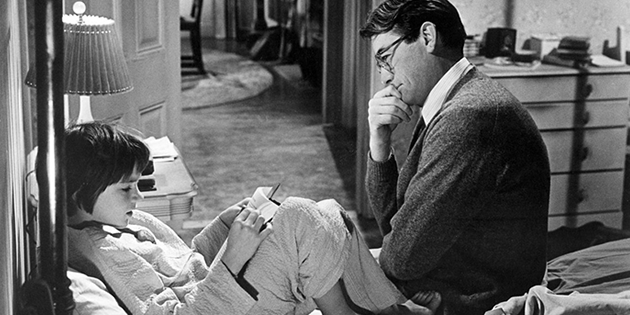Some stories need not be retold.
Nick Rudnik, Valdosta Today Opinion Contributor:
Great stories don’t necessarily need sequels. Would Fitzgerald’s The Great Gatsby or Nabokov’s Lolita enthrall us in the same way if there was a prolonged afterword? How about, my personal favorite, McCarthy’s 1985 masterwork, Blood Meridian, does Judge Holden need any more character development? After all, he’s pretty foreboding already: incarnating the darkness in man’s heart.
These oft-championed “great American novels” are masterpieces of modern literature. As such, they’re self-contained; merely windows to peer into the great issues of another time. The leitmotifs of evil, poverty, racism, romance, sexuality, the divine, and more are exquisitely grafted into a single, solitary tome. Oftentimes, when authors pen a sequel to their most celebrated works, they fall flat to immense public anticipation. The critics will say they’re overwrought—rife with cliché and melodrama. In short, it’s quite difficult to take an American epic and redo it; reproduce that something which emotionally transfixed the reader for the first time.
Harper Lee nevertheless wants to give it a try.
Lee, the famous author of the ubiquitous To Kill a Mockingbird, plans to release a sequel in July, titled, Go Set a Watchman. The 88-year-old Alabaman has long resisted the urge to publish anything—let alone a sequel to what Library Journal has dubbed the “best novel of the twentieth century.”
The sequel’s title is drawn from a passage in the Book of Isaiah: “For thus has the Lord said to me: Go, set a watchman; Let him declare what he sees.” The greater context of the prophet’s pericope foretells the coming fall of Babylon. And Harper’s plot centers on a grownup Scout and her now-aging father, Atticus Finch, as they experience the maelstrom of social tumult that is the 1950s rural south. In this way, the title is quite fitting.
But despite the fanfare, this is a novel that won’t be on a reading list of mine anytime soon.
To Kill a Mockingbird endures for it presents childhood innocence coupled with the messy subjects of rape and race in the Depression era south, in a splendidly agreeable way. Here we have the young Scout as she tries to rectify the injustices in her world—the fictional Maycomb, Alabama. Scout’s father, Atticus, a lawyer, defends a black man, Tom Robinson, against the false accusation that he raped a white woman. In the Depression era south, this was tantamount to a death sentence. And in Tom’s case, the results sadly prove as expected.
The world of Scout simply cannot be redone or added to. After Scout watches her father, her hero, in his prophetic southern baritone “fight the good fight,” defend a vulnerable man in court against injustice, only to find his efforts to be in vain (as Atticus likely understood all along) and our hearts break for her. Scout, in her childlike innocence, begins to question her fallen world, “How can things like this be so?” She must inevitably ponder.
In the end, she begins to embrace a nascent sense of womanhood; fronting the reality that the world is far from perfect. In the final moments of novel, Lee gives us perhaps the most simple, yet powerful, human moment. Atticus embraces Scout in his arms, reading to her, and consoling her the only way a father knows how. After all, despite all she’s come to learn, she’s still an 8-year-old girl.
In this moment, this brief window into another time and place, the reader’s heart swells up with emotion. One can’t help but reflect upon the dénouement and repeat the lines of Wordsworth, “Bliss was it in that dawn to be alive; But to be young was very heaven!” It’s a pure moment, blissful innocence, with just a soupcon of melancholy.
Deep inside, the true Mockingbird devotee knows any attempt to rekindle that feeling will surely be lost in a sequel. That’s that pinch of wistful longing we can’t help but feel by tome’s end. Like that first gaze into your newborn child’s eyes, that first kiss with “the one,” or that first time you watch a sunrise over an expansive ocean, you can never get that feeling back. And in its place we have nostalgia.
We identify with Scout. Maybe we even wish for more pages to understand her in much the same way we still long for our own childhoods. One could say Wordsworth is right: it was our own youthful heaven in that dawn that made us truly alive. In the case of Scout and Harper’s original work, this was all the more powerful because of the ephemeral nature of the descriptions we read.
But as humans we try our best to recreate them, as best as we know how. What’s certain, however, is that these recreations never quite meet our expectations. Maybe this result is a caveat to the unspoken power of both great human emotion and great writing. And perhpas what made us love something in the first place was its originality; its sincerity. And frankly, a do-over or a serialization will simply not fulfill our expectations. Such is the nature of the sequel.
And such is why I’m not going to curl up with this tome anytime soon.
 Nicholas A. Rudnik is currently pursuing a degree in political science with a concentration in American politics at Valdosta State University. Previously, he’s served as a congressional page in the U.S. House of Representatives during the 111th Congress and in the Office of U.S. Congressman Sanford Bishop. Further, Nick has served on staff at an institutional interest group, the Association of American Law Schools, in Washington and has worked in the private sector. He has presented his research, focused primarily on congressional parties and elections, at regional academic conferences and hopes to pursue a graduate degree in political science. Nick is currently completing two manuscripts relating to southern congressional elections and judicial decision-making in the area of campaign finance; he can be contacted via e-mail at narudnik@valdosta.edu. Follow Nick on Twitter: @NickRudnik.
Nicholas A. Rudnik is currently pursuing a degree in political science with a concentration in American politics at Valdosta State University. Previously, he’s served as a congressional page in the U.S. House of Representatives during the 111th Congress and in the Office of U.S. Congressman Sanford Bishop. Further, Nick has served on staff at an institutional interest group, the Association of American Law Schools, in Washington and has worked in the private sector. He has presented his research, focused primarily on congressional parties and elections, at regional academic conferences and hopes to pursue a graduate degree in political science. Nick is currently completing two manuscripts relating to southern congressional elections and judicial decision-making in the area of campaign finance; he can be contacted via e-mail at narudnik@valdosta.edu. Follow Nick on Twitter: @NickRudnik.











